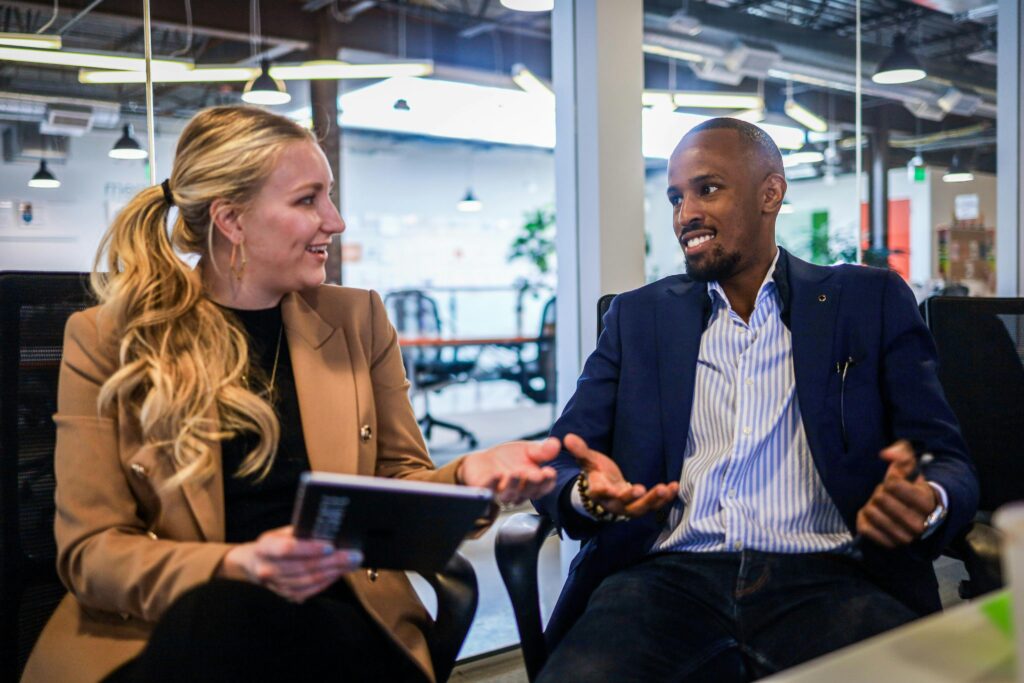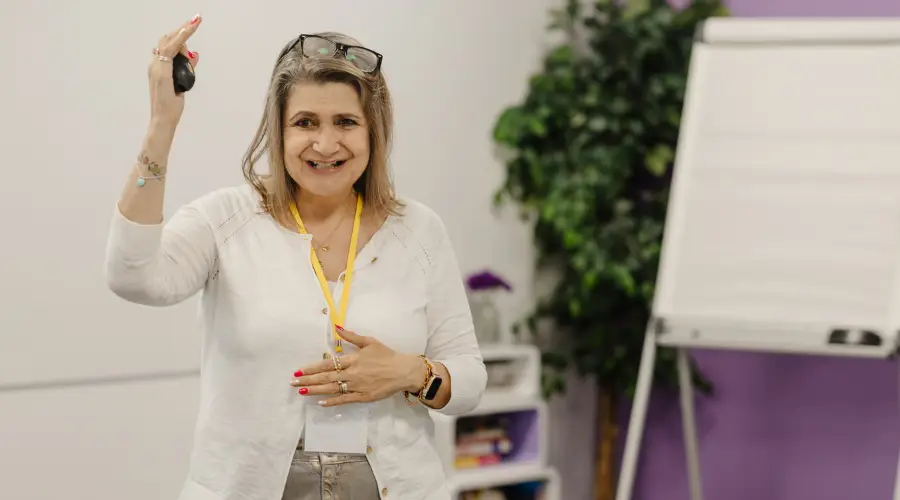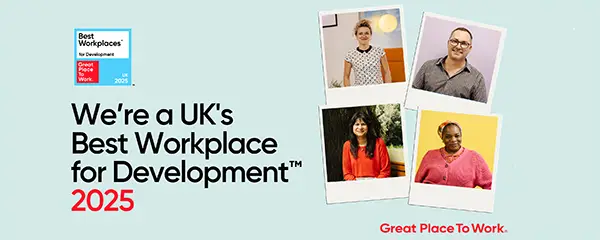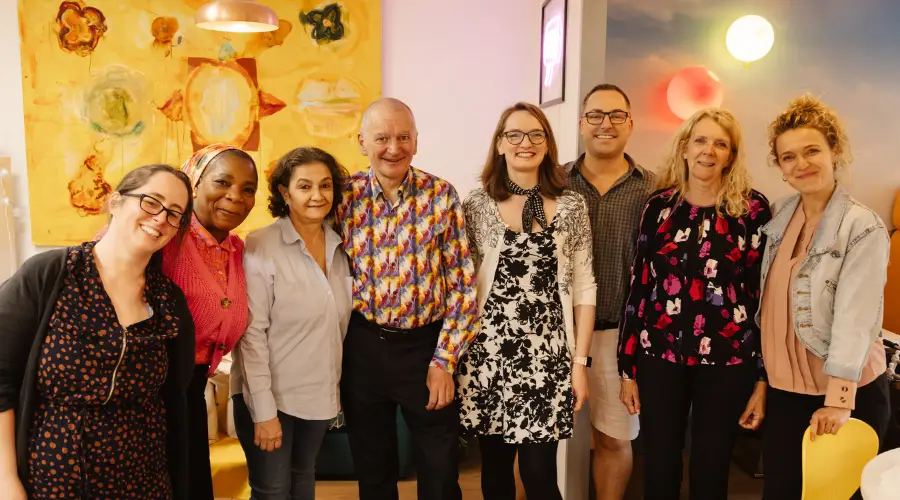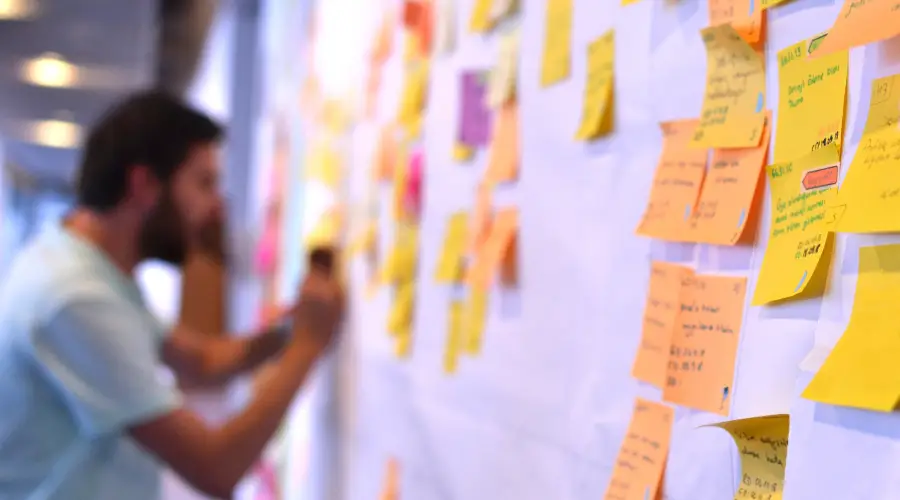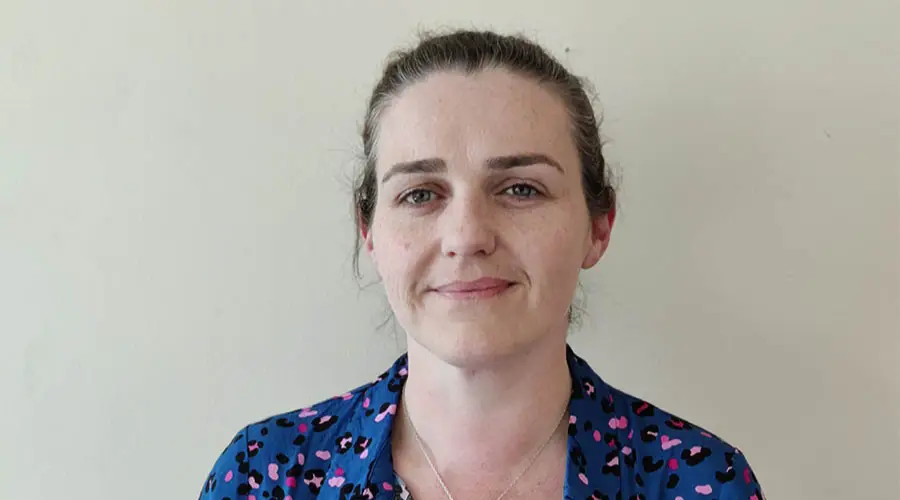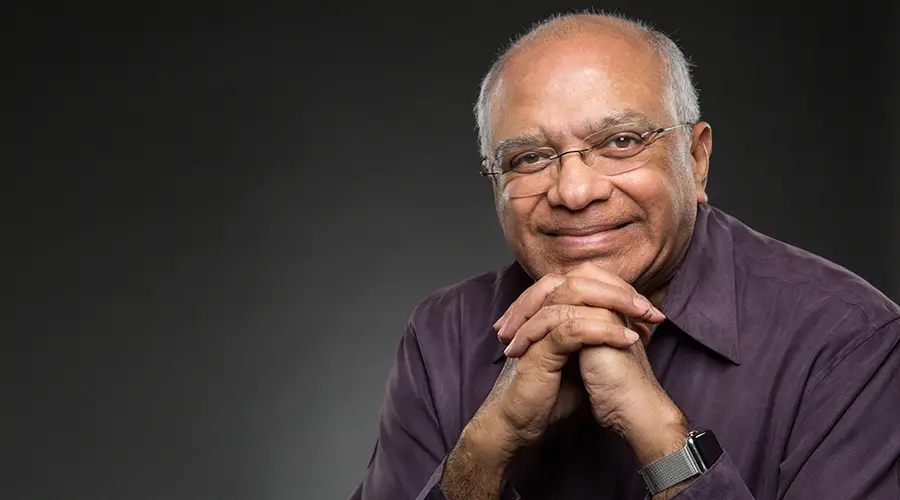Ann Hartland was part of Happy’s first ever cohort for the Level 7 Senior Leadership Programme.
“What I loved about it the most, was the learning. I love learning. The amount that we covered and what we covered over a such long period of time meant that not only could we learn as we go and take that in, and we have enough time to take it in, but there was also a requirement then to apply our learnings as well.
“As senior leaders, we have had enough experience to intrinsically know what will work and what won’t work in the workplace, but what I was attracted to in this course in the particular was that it was going to give me the theories to back up my senses. We learned a lot of theories.”
The Level 7 programme is an apprenticeship, which means it is very much about putting the learning into practice. This was something Ann really appreciated. “We were told very much to experiment, to test, to learn, to celebrate what worked and equally, celebrate what didn’t work.”
When talking about challenges she had to face when implementing new learnings, Ann says:
“There were a few… the main one, which is the one that I probably have the most intense discussions about, whether it’s in our organisation or outside, is whenever you are thinking about a people-first approach, which is really what this is about,” Ann explains. “My key motivator to continue and try and make our organisation a progressive organisation is that if your people like what they do, they will want to be involved. If they’re involved, they will feel like they belong. If they feel like they belong, they will do the work, and they will do the work very well.
“I do get some push-back when a people-first approach comes up in conversation. It can seem to some to be a bit soft or a lack of understanding of being a business leader. But, I do this, and I continue to do this, because I know a happier workforce is a more productive workforce. It’s not about pleasing everybody. You never will please everybody. But time is much better spent working with those who are engaged and want to work with the business.”
Through the programme, Ann realised that Cedar’s purpose as an organisation needed to be reviewed. She found it didn’t make sense for the company anymore, and wanted something that was relevant and meaningful to the team – to give everyone meaning (and more joy) at work.
Some areas that didn’t work, for example, was a four day working week for their people – Cedar offers client support 5 days a week.
One of the biggest lessons from the programme? Creating a happy culture doesn’t stop. You need to continue to reflect and make changes all the time.
Ann’s tips for a happy workplace:
- Do you know what is expected of you at work?
- Do you have the opportunity to do what you do best every day?
- Regular, direct and honest communication
Hear more from Ann and about Cedar on The Happy Manifesto Podcast, hosted by Henry Stewart and Maureen Egbe. Listen on The Happy Manifesto website, Apple, Spotify, or wherever you get your podcasts.
Related resources
- How to create and maintain a strong culture in a growing team — Michelle was a guest on The Happy Manifesto Podcast in October 2023. Listen to this episode on The Happy Manifesto website, or wherever you get your podcasts.
- Pre-Approval in practice at TLC: Talk, Listen, Change — Michelle talks about how TLC’s Marketing Officer was Pre-Approved to create their new website in this two-minute video from the 2017 Happy Workplaces CEO Conference.
- Case study — TLC: Talk, Listen, Change — all of TLC’s frontline managers and aspiring leaders have attended the Happy Leadership Programme and one of the senior team has been on Happy’s Level 7 programme. Find out what impact it’s had in this case study.
- Next Jump: Creating a culture of leadership development — At Next Jump, the focus has been on building a culture through which decision-making can be taught. Find out more in this video from the 2017 Beyond Budgeting Conference.
- Our next Level 7 programme for Senior Leaders starts in September — Our Level 7 Senior Leadership Apprenticeship programme, the equivalent of a post-graduate degree or MBA, is focused on people and how you create trust-based organisations where people can truly fulfil their potential.


